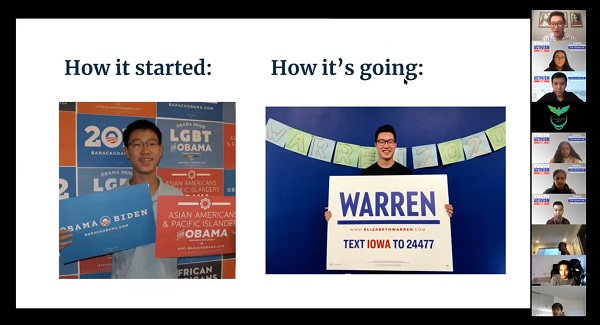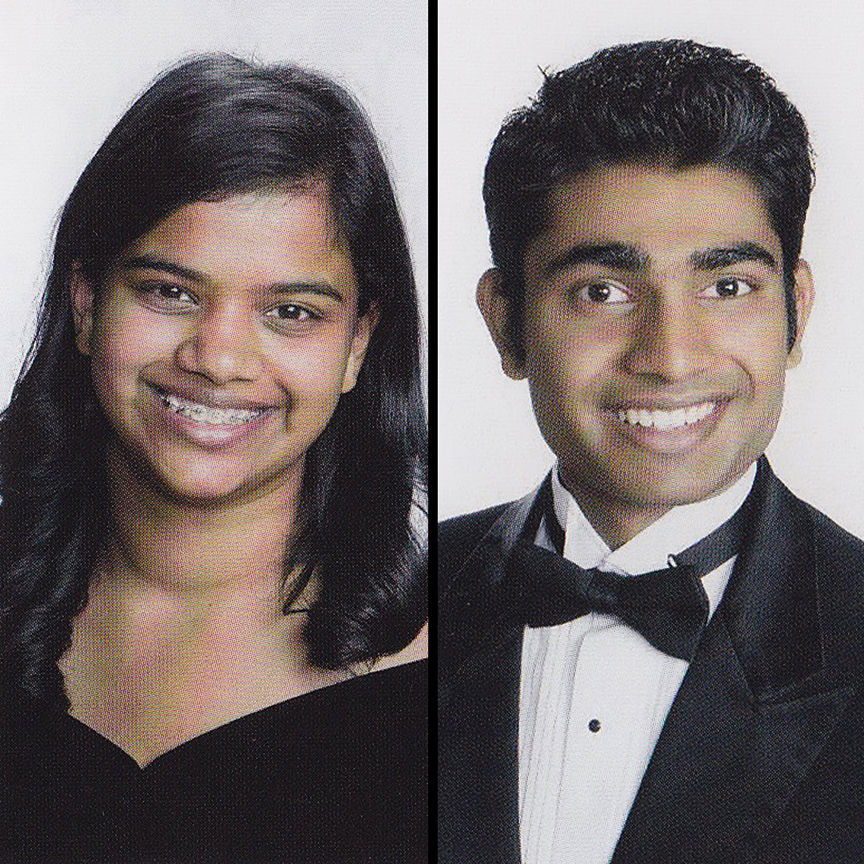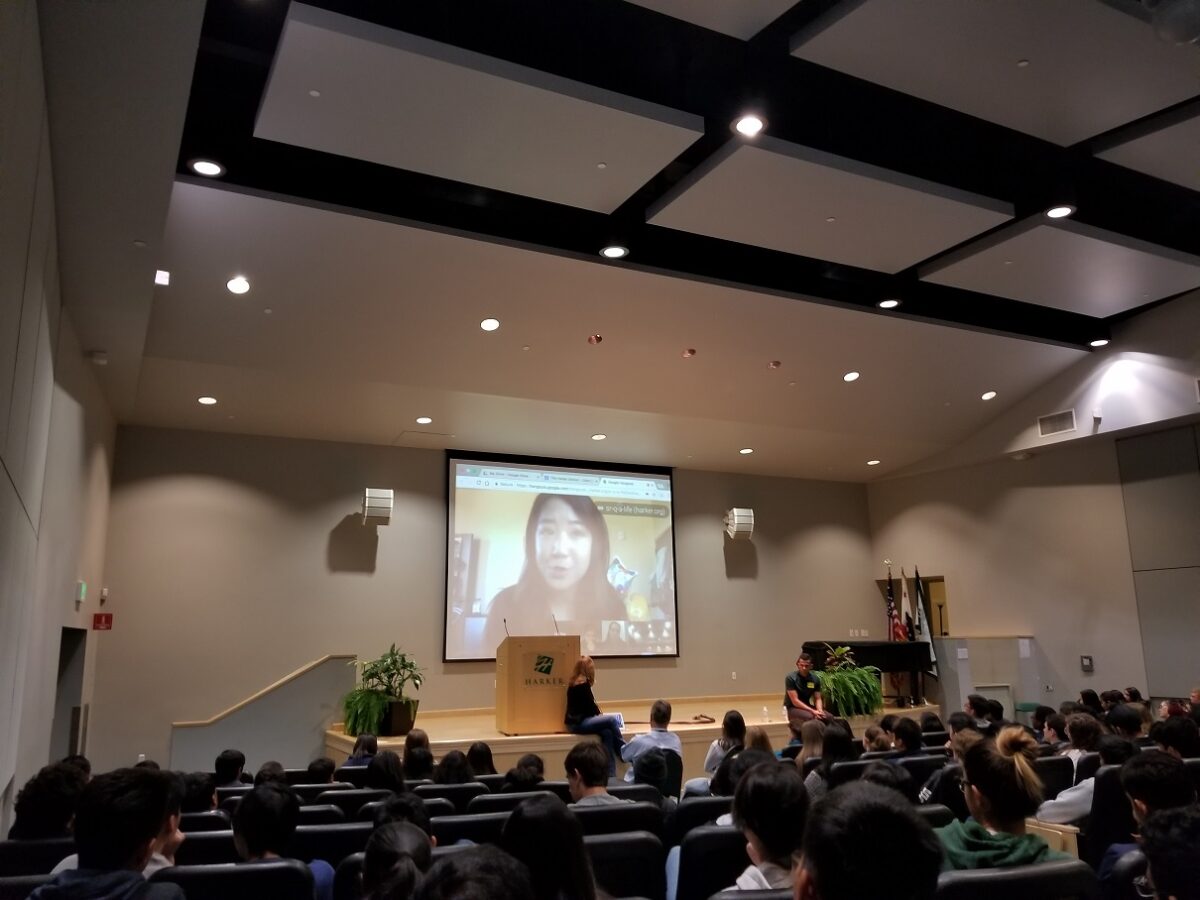Vamsi Gadiraju ’15 was recently named to the 2024 Forbes 30 Under 30 in the Food and Drink category.
class of 2015
Felix Wu ’15 shares lessons from political career
In December, Harker’s Youth Activism Club hosted a talk with Felix Wu’ 15, who discussed his career in politics and how young people can start their own careers in politics.
Alumni receive Dean’s Award from University of Pennsylvania for academic excellence in service and innovation
Two Harker alumni were given Dean’s Awards for Academic Excellence by Wharton/University of Pennsylvania School of Undergraduates this spring.
Seniors learn about college life from Harker alumni at assembly
For more on this subject, check out the winter issue of Harker Magazine coming to mailboxes at the end of December. In the article,…
Senior Class Gift to Go Toward Extending Shah Patio for Future Grade 12 Students
This article originally appeared in the summer 2015 Harker Quarterly. As a parting gesture, this year’s graduating class dedicated its senior gift toward helping…
Graduation 2015: The Journey Continues
This article originally appeared in the summer 2015 Harker Quarterly. Crowds poured into The Mountain Winery in Saratoga. Students cheered for each other, parents…
Seniors Wish Juniors Luck in the Coming Year at Baccalaureate Ceremony
This article originally appeared in the summer 2014 Harker Quarterly. Days before the 2014 graduation ceremony, the classes of 2014 and 2015 gathered at…



